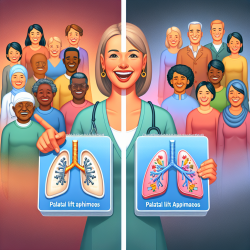Introduction
The conflict in the Tigray region of Ethiopia has had a devastating impact on the local healthcare system. The research article titled The impact of war on the health system of the Tigray region in Ethiopia: an assessment provides a comprehensive analysis of the damage inflicted on healthcare infrastructure and services. As practitioners focused on creating positive outcomes for children, it is crucial to understand the implications of such conflicts on healthcare systems and consider how these insights can inform our practice.
Understanding the Data
The study highlights that six months into the conflict, only 27.5% of hospitals, 17.5% of health centers, and 11% of ambulances were functional. None of the 712 health posts remained operational. This collapse in infrastructure is mirrored by a dramatic increase in the population requiring emergency food assistance, rising from less than one million to over 5.2 million people.
Before the conflict, the region boasted high performance in maternal and child health services, with antenatal care at 94%, supervised delivery at 73%, and children vaccination at 73%. These services were severely disrupted during the initial 90 days of the conflict, indicating a significant setback in healthcare delivery.
Implications for Practitioners
For practitioners, especially those involved in speech-language pathology and related fields, understanding the impact of such disruptions is vital. The data underscores the importance of resilience and adaptability in healthcare systems. Practitioners can draw several lessons from this research:
- Infrastructure Resilience: Building robust healthcare infrastructure that can withstand socio-political upheavals is crucial. This includes maintaining digital health records and ensuring supply chain diversity to prevent complete service disruption.
- Community Engagement: Strengthening community-based healthcare initiatives can provide a buffer during crises. Training community health workers and leveraging local resources can sustain basic health services.
- Advocacy and Policy Influence: Practitioners should engage in advocacy to influence policy changes that prioritize healthcare resilience and equitable access, especially in conflict-prone regions.
Encouraging Further Research
The Tigray conflict highlights the need for ongoing research into the resilience of healthcare systems under duress. Practitioners are encouraged to engage in or support research that explores:
- The long-term impact of healthcare disruptions on child development and outcomes.
- Innovative models of care delivery that can operate effectively in crisis conditions.
- Strategies for integrating technology to maintain service continuity during conflicts.
Conclusion
The conflict in Tigray serves as a stark reminder of the vulnerabilities in healthcare systems. By understanding these challenges and leveraging data-driven insights, practitioners can better prepare for and respond to similar situations, ultimately improving outcomes for children and communities.
To read the original research paper, please follow this link: The impact of war on the health system of the Tigray region in Ethiopia: an assessment.










